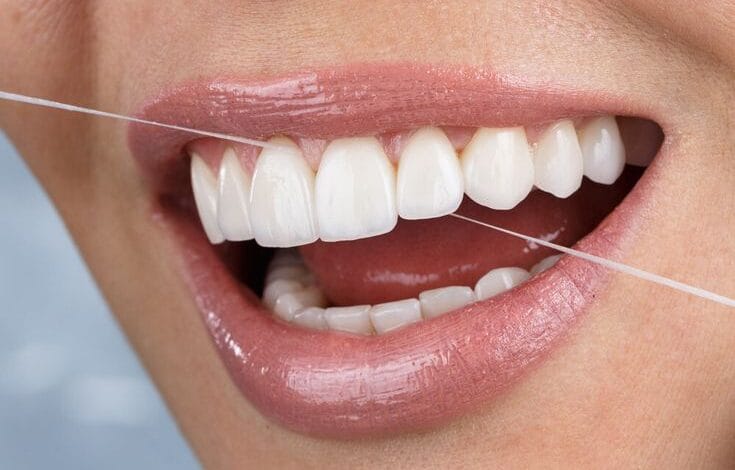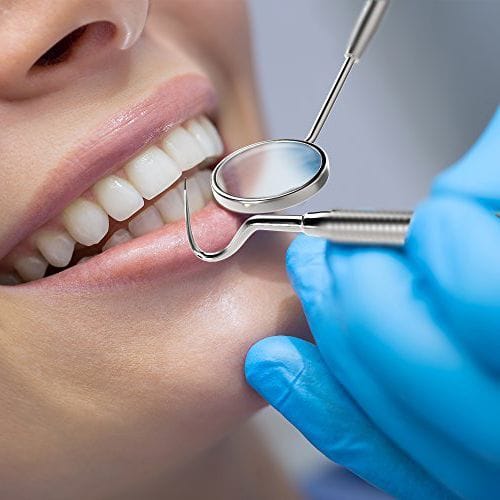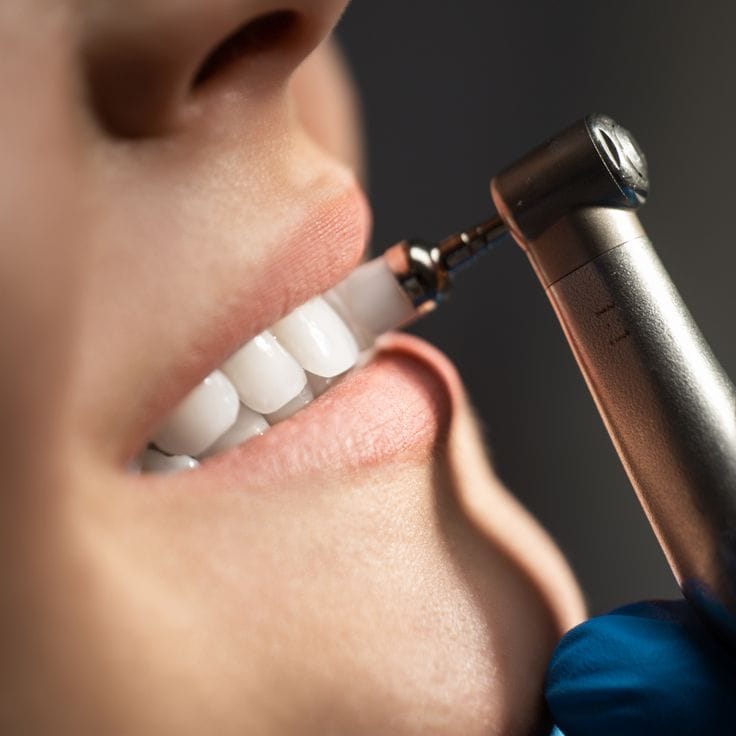Oral Hygiene: Tips for Healthy Teeth and Oral Health

A beautiful smile begins with a clean, healthy mouth! Practicing good oral hygiene not only keeps your breath fresh, but also plays a crucial role in maintaining overall health. Daily care of your teeth and oral tissues reduces the risk of oral disease and harmful bacteria. Simple steps make a huge difference in achieving optimal oral health.
The Importance of Oral Hygiene for Overall Health
Oral hygiene is more than just avoiding bad breath. It is essential for protecting your oral cavity and contributes to better overall health. The mouth is the entry point for food and air, and poor oral hygiene allows bacteria to enter the body, potentially affecting the heart, immune system, and brain.
How Does Oral Hygiene Affect Immunity and Heart Health?
Harvard studies show that oral bacteria linked to gum disease can enter the bloodstream and cause inflammation that harms the heart and weakens the immune system. Brushing and flossing your teeth daily, along with using a fluoride mouthwash, protects immunity and lowers heart disease risk.
The Link Between Bad Breath and Chronic Diseases
Bad breath isn’t just embarrassing. It can signal chronic diseases like diabetes, liver issues, or kidney disorders. According to the American Dental Association, maintaining good oral hygiene helps reduce odors linked to internal health problems.
Daily Dental Hygiene

Brushing and flossing your teeth every day is the foundation of oral care. Skipping these steps leads to plaque buildup, tooth decay, and gum disease. Daily brushing with fluoride toothpaste keeps teeth and oral tissues healthy and controls bacterial growth.
Did you know? Brushing your teeth two times a day can reduce the risk of cavities by up to 60%?
The Importance of Brushing Teeth Twice a Day
Brushing your teeth at least two times a day is key to healthy mouth. It helps remove dental plaque from the gum line and prevents tooth decay and gum disease. Weak oral health, if ignored, may lead to serious problems like oral cancer. Oral hygiene is the practice that protects your teeth and oral tissues, and oral hygiene is essential for general health. Oral health professionals always give oral hygiene instructions like brushing with fluoride toothpaste and using make sure to brush twice every day . To keep your teeth healthy, follow daily brushing and flossing, and talk to your dentist for personalized health tips.
The Difference Between Brushing and Flossing Teeth
- Toothbrush: Cleans visible surfaces of teeth and supports gum health.
- Floss: Cleans between your teeth, removing food and bacteria unreachable by brushing alone.
Water flossers also effectively eliminate debris and reduce inflammation.
Did you know? Daily flossing can reduce gum disease risk by 40%?
Using Mouthwash
Adding mouthwash enhances your oral hygiene routine. Mouthwashes with chlorhexidine or fluoride fight oral bacteria, strengthen enamel, and prevent plaque buildup. Clinical studies confirm that using mouthwash twice daily improves gum and dental health within two weeks.
Did you know? Regular use of mouthwash can cut gingivitis risk by 30%?
Benefits of Mouthwash in Reducing Bacteria
No. Mouthwash supports oral care, but doesn’t replace brushing and flossing. Experts at the University of Michigan recommend combining all three for optimal dental health.
Did you know? Certain mouthwashes reduce plaque by 50% in just two weeks?
Can Mouthwash Replace Brushing?
Bad breath may result from:
- Poor oral hygiene (bacterial buildup)
- Dry mouth (reduced saliva)
- Certain foods (garlic, onions)
- Gum disease (sulfur-producing bacteria)
- Health conditions (respiratory, diabetes, liver)
- Tobacco products
What Causes Bad Breath?
Some foods cause temporary or chronic bad breath. Garlic and onions release sulfur compounds. Dairy and sugars feed bacteria. Apples and fibrous vegetables stimulate saliva and help clean teeth.
Did you know? Eating an apple after meals helps reduce breath odor naturally?
What Does Your Diet Say About Your Breath?
- Brush your teeth two times a day with fluoride toothpaste
- Floss daily to clean between your teeth
- Use antibacterial mouthwash
- Brush your tongue
- Stay hydrated
- Avoid odor-causing foods
- Visit your dentist regularly (every 6 months)
Daily Steps to Permanently Prevent Bad Breath
Food and drinks play a major role in dental health. Sugary and acidic items damage enamel and promote decay. Nutritious options, like vegetables and dairy, protect your teeth.
How Does Food Affect Oral Hygiene?
The food and drinks you consume daily can either contribute to oral health or lead to weak oral health. Sugary snacks and acidic beverages can weaken enamel, cause plaque deposits, and irritate the gums. This may increase the burden of oral diseases like tooth decay and gum inflammation. To keep your teeth healthy, follow oral care directions such as clean your teeth no fewer than two times a day and clean between two teeth with floss to remove food particles stuck near the gum border. Oral hygienists and oral health professionals often advise limiting sugar and eating crunchy fruits and vegetables that naturally clean teeth. Talk to your dentist or dental hygienist about food choices and ask your dentist for personalized care needs. Remember: health without oral health is incomplete.
Foods That Clean Your Mouth and Protect Your Teeth
Practicing good oral hygiene goes beyond brush and use dental floss. The food you eat also plays a key role in maintaining healthy teeth and oral tissues. Certain foods help clean between your teeth, stimulate saliva production, and reduce the burden of oral diseases. To support healthy mouth, include foods in your diet that naturally protect your protective tooth coating and help keep your teeth healthy.
Here are health tips on foods that contribute to oral care:
- Apples and carrots: Their crunch helps remove plaque away from the teeth, and they massage the gum line.
- Cheese and yogurt: Rich in calcium and phosphate, they strengthen protective tooth coatingand contribute to oral defense.
- Leafy greens: Packed with vitamins, they reduce inflammation and support overall health, including oral health.
- Green tea: Contains antioxidants that fight oral bacteria and help prevent poor oral health conditions.
- Water: Especially fluoridated water, it washes food and drinks particles away from the teeth and prevents dry mouth.
Dentist or dental hygienist often recommend these foods as part of instructions for good oral hygiene. Along with daily brush and use dental floss, eating smart can lower your risk of oral cancer and tooth decay. Always ask your dentist for personalized oral care directions, and see a dentist regularly to adjust your diet based on your care needs.
Foods That Damage Enamel and Increase Cavities
Poor food choices can lead to poor oral health, weaken protective tooth coating, and irritate the gums. Some foods support oral diseases and increase the burden of oral issues if not followed by regular brush and use dental floss and proper care.
Avoid or limit:
- Sugary snacks and candies: Feed bacteria and are a major cause of decay caused by oral bacteria.
- Acidic fruits like lemons: Wear down enamel and affect the gum line.
- Soda and energy drinks: Combine acids and sugars that damage make sure to brush twice every day a day if consumed regularly.
- Sticky foods like dried fruits: Stay between two teeth and are hard to clean away from the teeth.
- Alcohol and caffeine: Dry the mouth and slow saliva flow, increasing the risk of oral cancer.
To protect yourself, clean your teeth no fewer than two times a day, use oral hygiene products, and talk to your dentist or oral health professionals for preventive care and updated oral hygiene instructions.
Dental Care Is Essential at Every Age

Oral hygiene is essential for maintaining clean teeth and gums at every stage of life. From childhood to old age, make sure to brush twice every day and daily brush and use dental floss help reduce the burden of oral diseases.
Children need proper dental hygiene directions, while adults should see a dentist at least twice a year. Older adults may face challenges like dry mouth and poor oral health, which can increase the risk of oral cancer.
No matter your age, follow a consistent oral hygiene routine, use trusted oral hygiene products, and don’t forget to talk to your dentist regularly.
Oral Care Routine for Children and Teenagers
- Brush your teeth at least two times a day using fluoride toothpaste.
- Floss between two teeth daily to prevent plaque deposits.
- Use oral hygiene products designed for kids and teens.
- Visit a dental care provider regularly for oral hygiene instructions.
- Choose healthy food and drinks to support good oral health.
- Avoid habits that irritate the gums or support oral health problems.
Did you know? Starting a good oral hygiene routine early can prevent the oral health challengesdiseases later in life.
Maintaining Oral Health in the older people
Maintaining good oral health in the older people is essential, as poor oral health can support oral infections and systemic issues. Older people should brush their teeth at least twice a day with a soft-bristled brush, follow daily brush and use dental floss, and use suitable oral hygiene products. Visiting a dentist or dental hygienist regularly ensures they get proper oral hygiene instructions. Since age can affect the gum line and increase the oral health challenges diseases, oral health professionals recommend preventive care and personalized care needs to keep your teeth healthy longer.
Daily Habits to Maintain Good Oral Hygiene
Daily habits like clean your teeth no fewer than twice a day with fluoride-infused toothpaste, make sure to brush twice every day, and using the right oral health products are crucial to care for your teeth healthy. Regular visits to the dentist or dental hygienist help ensure that your oral hygiene routine is effective. Good oral health also involves staying hydrated, avoiding sugary foods, and following oral health tips for a cleaner mouth.
Morning and Evening Routine for Oral Protection
Morning Routine:
- Brush your teeth at least twice usingfluoride-infused toothpaste .
- make sure to brush twice every day to remove plaque.
- Use a mouthwash to kill bacteria and freshen breath.
- Brush your tongue to prevent bad breath.
Evening Routine:
- clean your teeth no fewer than twice before bed.
- Floss to clean between your teeth and remove trapped food.
- Rinse with a fluoride mouthwash to protect protective tooth coating.
- Ask your dentist for any specific recommendations for your dental hygiene routine.
The Importance of Tongue Cleaning in Preventing Odors
The tongue collects bacteria and acids that cause odor. Clean it with a toothbrush or scraper, and rinse with antibacterial mouthwash to support a healthy oral microbiome.
By practicing these tips, you take care of your teeth and gums, prevent oral health problems, and support your overall health.
Frequently Asked Questions about the oralo hyguene
What are the basic of oral hygiene?
The basics of oral hygiene include brushing your teeth twice a day, flossing, and using mouthwash. Regularly removing dental plaque prevents many oral health issues.
What is the correct order for oral hygiene?
The correct order is flossing first to remove food between teeth, brushing next to clean surfaces, and finishing with mouthwash to kill bacteria and freshen breath.
does oral hygiene help with weight loss
Oral health care itself doesn’t directly cause weight loss, but good oral hygiene helps avoid oral health problems that might impact overall health.
why is oral hygiene important for older adults
For older adults, regular dental visits and proper oral health care are crucial to prevent dental plaque deposits, gum disease, and maintain healthy teeth and gums as they age.
Maintaining good oral health is a crucial investment in your overall well-being. Regular brushing, flossing, and visiting your dentist for cleanings can help prevent dental plaque and many oral health issues. Stay consistent with your oral health care, and you’ll enjoy healthy teeth and gums for years. What’s your favorite oral hygiene tip? Share with us!
Read with us also how to keep your teeth white
